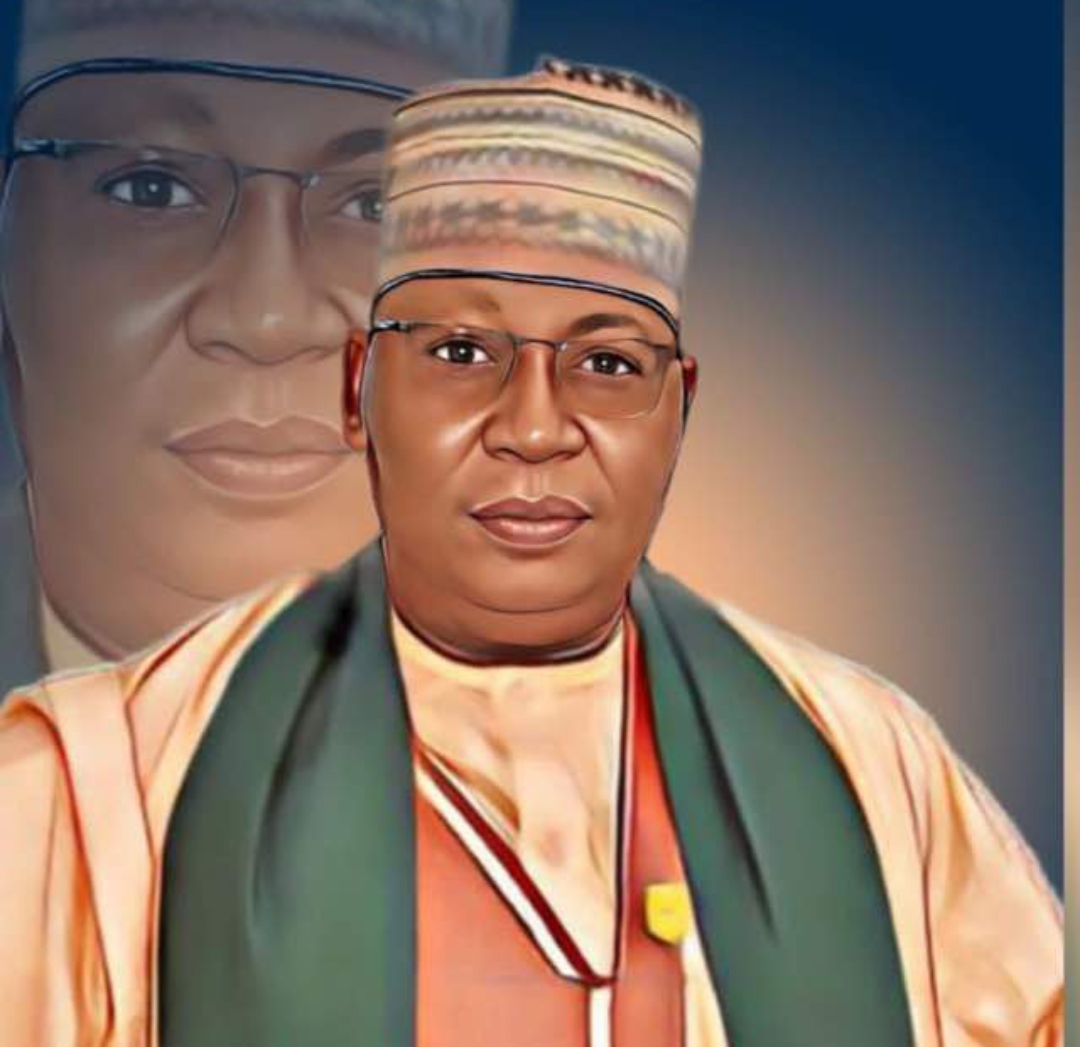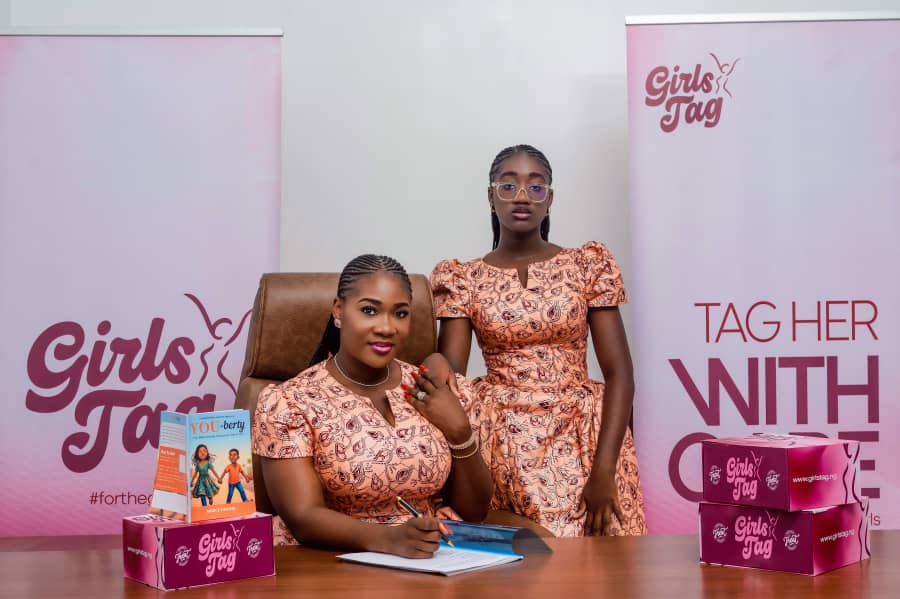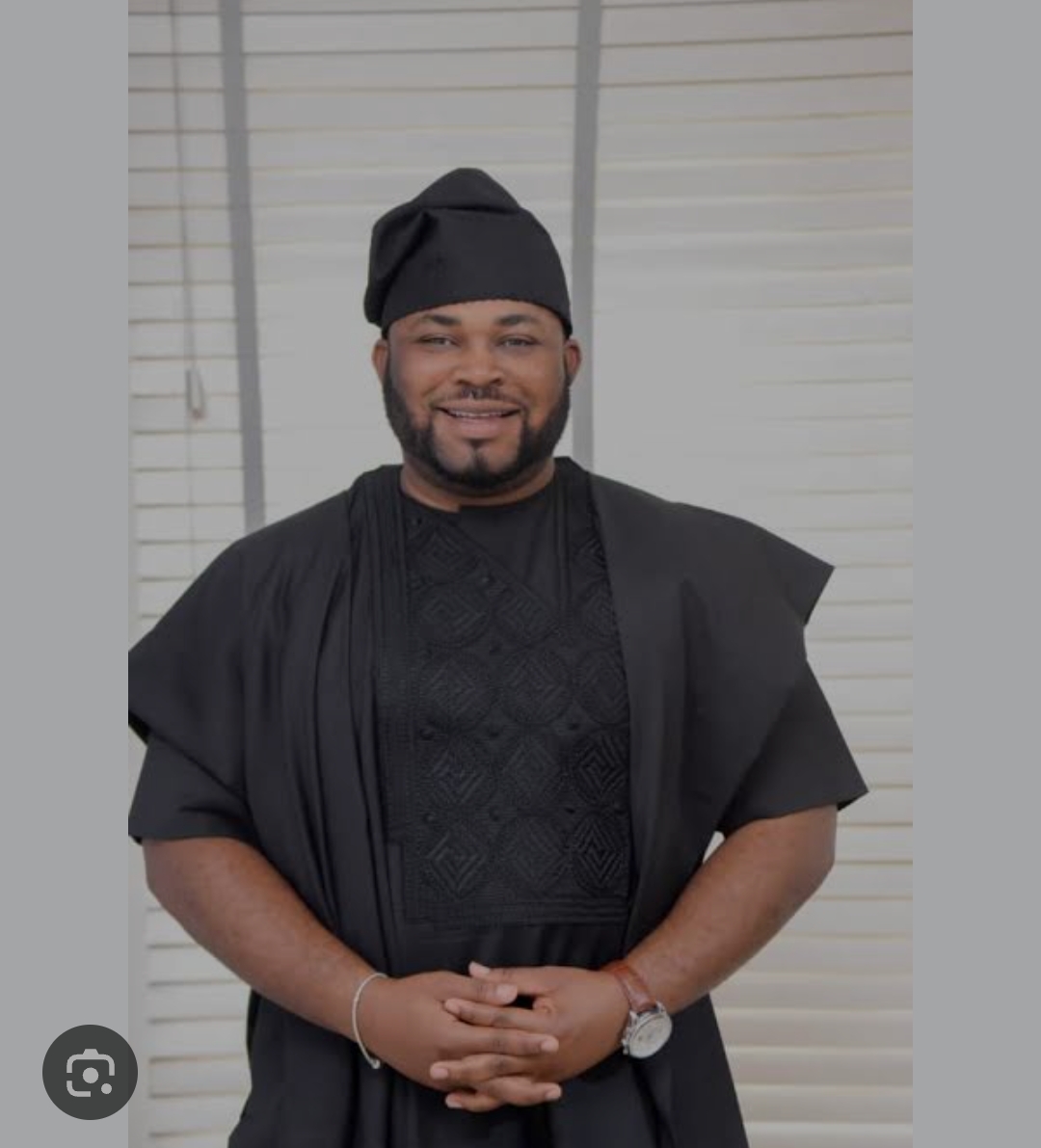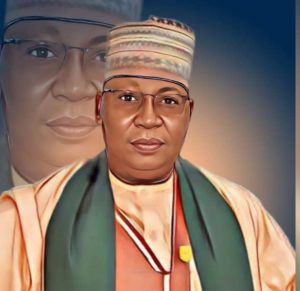celebrity radar - gossips
FORTIFYING TRUST: CATALYSING NATIONAL UNITY FOR A SECURE NIGERIA

FORTIFYING TRUST: CATALYSING NATIONAL UNITY FOR A SECURE NIGERIA
BY
SANI USMAN KUKASHEKA, mni
In the intricate tapestry of human interactions, trust is the cornerstone upon which societies are built, nations flourish, and progress thrives. It is a beacon that guides our collective endeavours, shaping the dynamics of national unity and development. In our country Nigeria, a nation rich in diversity and history, trust has played a pivotal role in the past. It possesses the potential to pave the way for a brighter future. As we navigate the complex landscape of the present world, it becomes evident that the implications of eroding trust are profound and far-reaching. The lack of trust casts shadows of conflict, misunderstandings, and insecurity, undermining the essence of societal cohesion among the various components of Nigerian society. However, beyond these ominous clouds lies the promise of enhanced national unity, harmony, and prosperity if we have trust and understanding.
Trust, a cornerstone of societal harmony, economic progress, and national solidarity, serves as the adhesive that binds diverse individuals into a cohesive whole. It encompasses the belief in reliability, honesty, and effectiveness, a shared faith that empowers cooperative efforts towards shared goals. Today, Nigeria stands at a crucial juncture, facing both the ravages of mistrust and boundless unity opportunities. In this context, nurturing trust emerges as a solution to the current conflicts and misunderstandings and as a vital catalyst for security, prosperity, and global relevance.
A glance into history reveals a Nigeria adorned with interwoven bonds of trust. Tradespeople entrusting their goods and children to business associates across regions has been a hallmark of cross-cultural partnerships and mutual reliance over the past few decades. Communities embraced the values of accommodation and hospitality, fostering an environment where trust was the currency of interaction. However, contemporary times find us on a different path. Amidst rumours, suspicions, and the deluge of misinformation, the erosion of trust has been palpable. The fraying of these essential bonds is evident in the swift resort to religion and ethnicity in national debates, eclipsing the broader perspectives that should unite us.
The ramifications of this deficit in trust are dire. Once harmonious under a banner of unity, the discordant chords of ethnicity and religion now resound with disharmony. The aftermath of the EndSARS movement and the last general elections highlighted the fractures within the national fabric, exposing a landscape marred by primordial sentiments, selfish inclinations, and a loss of collective identity. This critical moment demands reevaluating our societal values and an introspective journey towards rebuilding the trust that underpins our progress as a nation.
But why has trust waned, and who is responsible? Due to the unchecked spread of false information and fake news on social media, politics, religion, and cultural biases play a part. To navigate our diversity, we must champion the shared values that transcend our differences. Examples abound of countries embracing their diversity to forge national unity. Their successes underscore the state’s and its citizens’ pivotal role in sculpting a harmonious narrative. The state must not merely govern but also inspire trust through transparent governance, unbiased justice, and inclusive policies. In tandem, citizens are entrusted with nurturing a culture of empathy, openness, and cooperation.
To transform our trajectory, concerted efforts are indispensable. National orientation, public education, and enlightenment campaigns will serve as the lodestars that guide our collective ethos. Reviving neglected sports as a binding force is imperative, as is strengthening institutions like the National Orientation Agency (NOA) and the National Youth Service Corps (NYSC). By promoting cultural exchange programmes and inter-ethnic marriages, we lay the foundation for an inclusive Nigeria.
Government ministries, departments, and agencies, notably information and culture, youth, sports, the Nigerian Institute of Public Relations (NIPR), civil society organisations, and other professional bodies, are pivotal in spearheading initiatives to engender a sense of belonging and unity. Good governance, complemented by incentives for inter-ethnic marriages, will facilitate a tapestry where diversity is celebrated rather than vilified. Our media should play a transformative role by amplifying cultural practices that foster unity rather than those that divide us.
Yet, the path to restored trust is full of obstacles. The communication gap between citizens and authorities needs bridging, requiring timely, truthful, and transparent information dissemination. The government can nurture a culture of responsiveness that fortifies trust by leveraging modern communication channels such as mainstream d social media and credible non-partisan organisations and associations. Although this project may be challenging, the rewards are immeasurable—a united Nigeria built on integrity and trust.
In the mosaic of our nation, trust is the luminous thread that stitches hearts and minds together. By embracing the collective heritage bestowed by our founding fathers and the shared values that bind us, Nigeria can transcend its current challenges and emerge as a beacon of unity, strength, and progress on the global stage. With trust as our cornerstone, we can mould a future where national development and security thrive, prosperity is shared, and our collective identity stands resolute against the tides of discord.
In the end, trust will unite us, and in unity, we shall thrive.
The writer, Sani Usman Kukasheka, is an Abuja-based public analyst, strategic communication expert, and security expert. He can be reached at [email protected] or on his Twitter handle, @skusman.
celebrity radar - gossips
COAS Ties Battlefield Success to Constitutional Allegiance and Civil Authority

COAS Ties Battlefield Success to Constitutional Allegiance and Civil Authority
During his operational visit to the 4 Special Forces Command in Doma, the Chief of Army Staff, Lieutenant General Waidi Shaibu, delivered a stark message, intertwining the elite unit’s combat effectiveness with an unshakeable pledge of allegiance to President Bola Ahmed Tinubu and the Nigerian Constitution.
While directing troops to intensify high-impact operations, the COAS made it clear that their mission is a direct expression of their constitutional oath. He reaffirmed that the Nigerian Army’s primary role is to defend the nation against external aggression and provide aid to civil authority, all in strict adherence to the supreme law of the land and under the leadership of the Commander-in-Chief.
This emphasis on loyalty served as a powerful backdrop to his operational directives. By linking the “decisive defeat” of terrorists to the Army’s constitutional mandate and loyalty to the President, Lt. Gen. Shaibu sought to galvanise the Special Forces, framing their upcoming engagements not just as military objectives but as a sacred duty to the democratically elected government and the nation’s founding charter. The message was clear: their fight is a fight for the Constitution and the president it empowers.
celebrity radar - gossips
Mercy Johnson Okojie, Purity Okojie Lead Campaign for Girls Tag’s All-in-One Period Care Kit

*Mercy Johnson Okojie, Purity Okojie Lead Campaign for Girls Tag’s All-in-One Period Care Kit
iBlend Services, appointed Regional Agency for Girls Tag alongside its PR and marketing firm, Eddie MPR, has officially launched Girls Tag, described as Nigeria’s first all-in-one period care pack designed for girls aged nine and above.
The initiative seeks to tackle persistent gaps in menstrual health education and access to sanitary products in Nigeria, where many girls experience their first period with little preparation or guidance. According to the promoters, Girls Tag was created to eliminate the fear, confusion, and stigma often associated with puberty, replacing them with confidence, comfort, and dignity.
Beyond hygiene, the brand positions itself as a supportive care system for both girls and parents, offering tools and language to guide families through early puberty conversations.
To strengthen its reach, Girls Tag announced a strategic ambassadorial partnership with Nollywood actress and philanthropist Mercy Johnson Okojie and her daughter, Purity Okojie. The mother-daughter collaboration is intended to reflect authenticity and relatability for Nigerian families navigating similar experiences.
Speaking on the partnership, the leadership of iBlend Services expressed confidence that the ambassadors’ real-life connection would resonate deeply with mothers and daughters nationwide.
Mercy Johnson Okojie, in her remarks, described the initiative as a natural fit, noting that puberty can be an anxious period for both parents and children. She also revealed that her newly authored puberty guide, Youberty, will be included in every Girls Tag kit. The book is designed to help boys and girls aged 10 to 13 better understand the physical and emotional changes that come with growing up.
Each Girls Tag care pack contains premium sanitary pads in various sizes, overnight period pants, panty liners, disposable sanitary bags, a discreet sanitary purse, and a copy of Youberty. The kit is tailored to support first-time and early period experiences while promoting proper hygiene and self-care.
The company disclosed that the product will be available nationwide in Q2 2026 at select retail stores, pharmacies, and malls, with direct delivery options through its website and social media handle, @girlstag.ng.
With its combined focus on education, dignity, and accessibility, Girls Tag aims to reshape menstrual health support for young girls across Nigeria.
celebrity radar - gossips
DSS Invites Ogun LG Chairman, Alebiosu and others Over Attack At APC Stakeholders Meeting

*DSS Invites Ogun LG Chairman, Alebiosu and others Over Attack At APC Stakeholders Meeting*
The Department of State Services (DSS) Abeokuta on Monday invited Ijebu Ode local government Chairman, Hon Dare Alebiosu, and some political thugs alleged to have caused disturbance, incitement and physical attack during an APC stakeholders meeting few days to Ward Congress in the area.
A reliable security source disclosed that an aide of the Governor who was reportedly attacked during the stakeholders meeting was said to have petitioned the DSS.
According to the source, there have been growing concerns over the activities of the LG Chairman, who was alleged to be backing cultists and using them as a tool for harassment and intimidation in the community.
As it was reported, the LG boss was accused to have openly confronted and accused the Governor’s aide for identifying some of the cultists to DSS officials, while one of the cultist was said to have hit their target in the face and removing his medicated glasses. The swift and professional intervention of the Men of DSS quickly deescalated the matter and the meeting went on to a conclusive end.
The meeting which held at the residence of Chief Okuboyejo, the Governor’s Advisory Council Chairman at GRA Ijebu ode became tensed, after the LG chairman invaded the private premises of the old man with a large number of cultists which some of them were allegedly believed to be armed.
The source added that the case is presently with the DSS, while the petitioner has also submitted various evidence against the LG Chairman.
In another turn of event, Commisoner for Urban and regional planning was harassed and robbed, so also the former SLG to the Local govt also almost lost his life as he was attacked with cutlass by thugs who were allegedly said to be led by Dapo Adebajo, he was hospitalized. The case has also been reported to the DSS and Police as at the time of filling this report.
-

 celebrity radar - gossips7 months ago
celebrity radar - gossips7 months agoWhy Babangida’s Hilltop Home Became Nigeria’s Political “Mecca”
-

 society6 months ago
society6 months agoReligion: Africa’s Oldest Weapon of Enslavement and the Forgotten Truth
-

 society7 months ago
society7 months agoPower is a Loan, Not a Possession: The Sacred Duty of Planting People
-

 news3 months ago
news3 months agoWHO REALLY OWNS MONIEPOINT? The $290 Million Deal That Sold Nigeria’s Top Fintech to Foreign Interests









